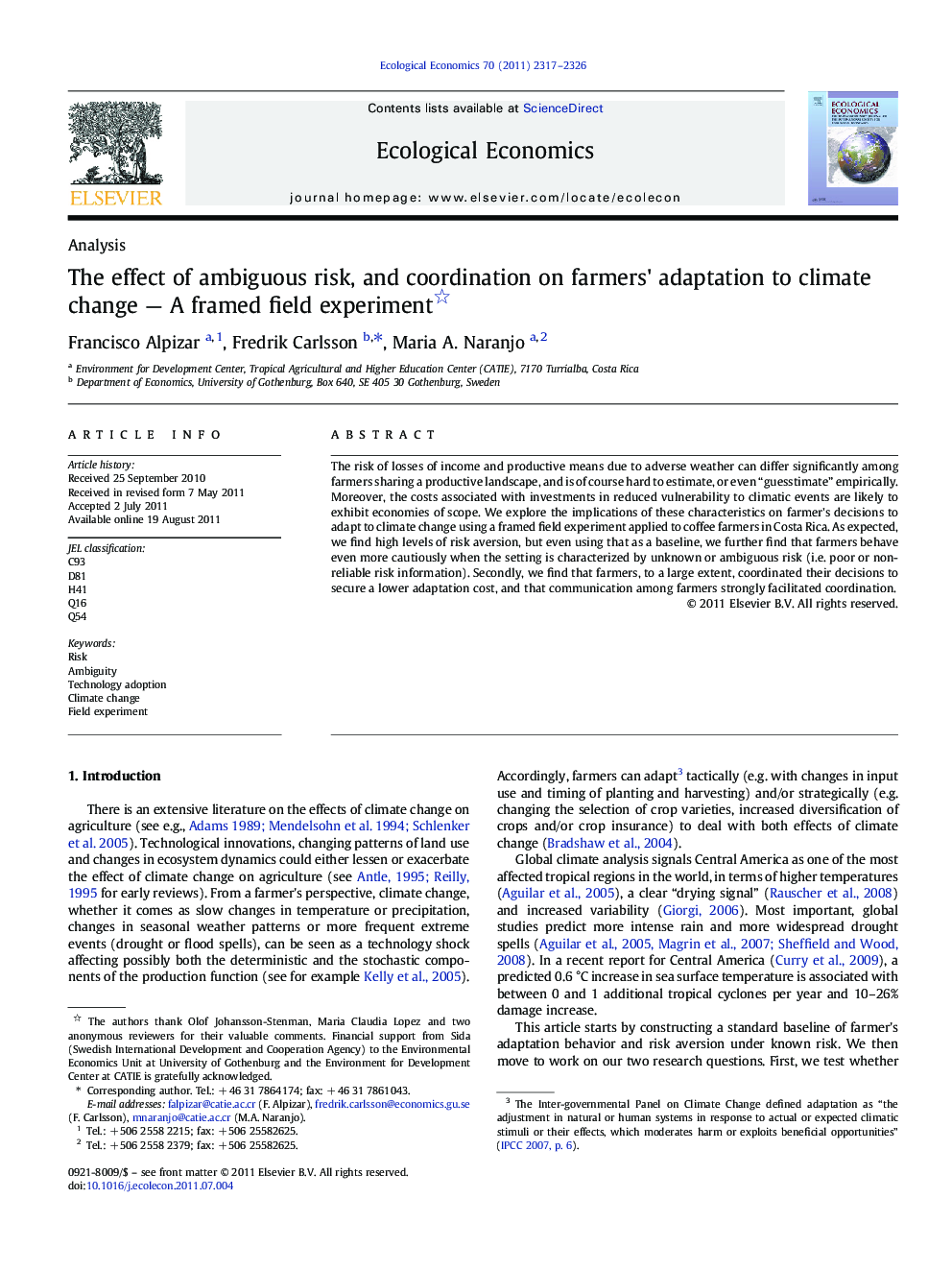| Article ID | Journal | Published Year | Pages | File Type |
|---|---|---|---|---|
| 5050497 | Ecological Economics | 2011 | 10 Pages |
The risk of losses of income and productive means due to adverse weather can differ significantly among farmers sharing a productive landscape, and is of course hard to estimate, or even “guesstimate” empirically. Moreover, the costs associated with investments in reduced vulnerability to climatic events are likely to exhibit economies of scope. We explore the implications of these characteristics on farmer's decisions to adapt to climate change using a framed field experiment applied to coffee farmers in Costa Rica. As expected, we find high levels of risk aversion, but even using that as a baseline, we further find that farmers behave even more cautiously when the setting is characterized by unknown or ambiguous risk (i.e. poor or non-reliable risk information). Secondly, we find that farmers, to a large extent, coordinated their decisions to secure a lower adaptation cost, and that communication among farmers strongly facilitated coordination.
⺠The risk of losses of income due to adverse weather differ significantly among farmers. ⺠We explore farmer's decisions to adapt to climate change using a framed field experiment. ⺠Farmers more frequently chose the safe options under unknown risk. ⺠Farmers coordinated their decisions to secure a lower adaptation cost. ⺠Communication among farmers facilitated coordination.
